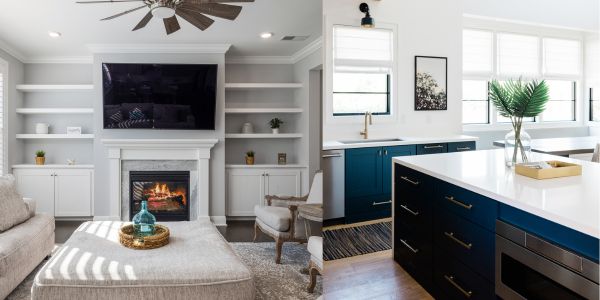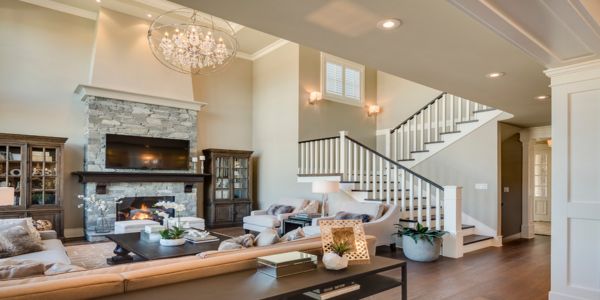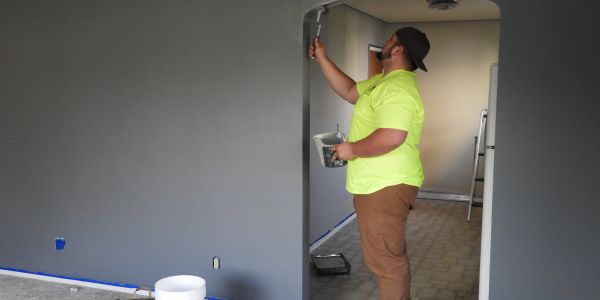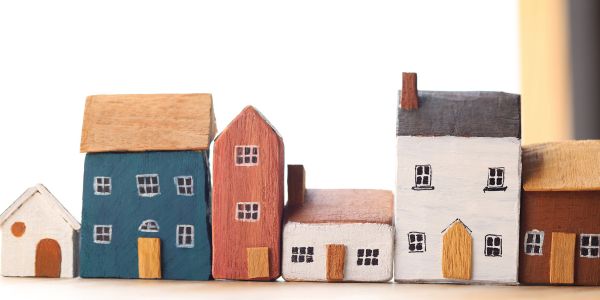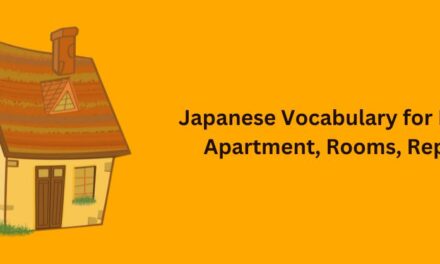Japanese Vocabulary for House, Apartment, Rooms, Repairs
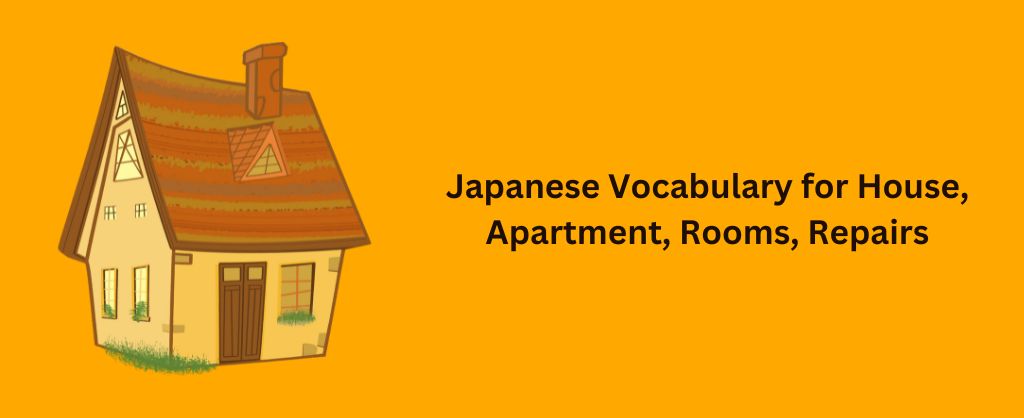
Register For the Online Japanese Event
Being able to describe your home or apartment and discuss housing details is an important skill in Japanese.
This article will teach you key vocabulary, phrases, and examples to talk about different types of houses, parts of a home, your ideal living situation, housing priorities, describing your current home, making repair requests, and more.
Important Phrases and Questions
Describing Different Types of Houses
There are several common terms used in Japanese to describe different types of housing:
- Detached house – 一戸建て (ichikodate) – A stand-alone house not sharing any walls with other units. Surrounded by yards.
- Townhouse – タウンハウス (taunhausu) – Attached row houses sharing side walls. Have multiple floors, own entrance.
- Apartment building – アパートメントビル (apātomento biru) – A multi-story complex divided into separate apartment units.
- Condominium – マンション (manshon) – Individual units are owned instead of rented. Shared common spaces.
- Public housing – 公営住宅 (kōei jūtaku) – Government-subsidized housing for low-income residents.
- Mansion – 高級マンション (kōkyū manshon) – Luxury, high-end condominium with amenities like pool, gym, security.
You can describe your house using phrases like:
- 一戸建ての家に住んでいます。 (Ichikodate no ie ni sunde imasu. – I live in a detached house.)
- このマンションは30階建てです。(Kono manshon wa sanjū kaidate desu. – This condominium building has 30 floors.)
Key Vocabulary for Housing Terms
Here are some of the most common Japanese words used when talking about a house, apartment, or other living spaces:
- House/Home – 家 (ie)
- Apartment – アパート (apaato)
- Room – 部屋 (heya)
- Kitchen – キッチン (kicchin)
- Bathroom – お風呂 (ofuro)
- Toilet – トイレ (toire)
- Bedroom – 寝室 (shinshitsu)
- Living Room – リビングルーム (ribingu rūmu)
- Dining Room – ダイニングルーム (dainingu rūmu)
- Entrance – 玄関 (genkan)
- Hallway – 廊下 (rōka)
- Stairs – 階段 (kaidan)
- Yard – 庭 (niwa)
- Garden – 庭 (niwa)
- Balcony – バルコニー (barukonī)
- Furniture – 家具 (kagu)
- Appliances – 家電製品 (kaden seihin)
- Closet – クローゼット (kurōzetto)
You can describe the rooms and features in your home, like:
- リビングには大きなソファがあります。(Ribingu ni wa ōkina sofa ga arimasu. – There is a large sofa in the living room.)
- 2階に3つの寝室があります。(Ni-kai ni mittsu no shinshitsu ga arimasu. – On the second floor there are three bedrooms.)
Describing Your Dream House
When imagining your perfect home, useful Japanese phrases include:
- 理想の家は自然に囲まれた一戸建て。(Risō no ie wa shizen ni kakomareta ichikodate. – My ideal house is a detached house surrounded by nature.)
- 理想のキッチンは大きな冷蔵庫と島がある。(Risō no kicchin wa ōkina reizōko to shima ga aru. – My ideal kitchen has a big refrigerator and kitchen island.)
- 理想のバスルームは深い浴槽とサウナが付いている。(Risō no basurūmu wa fukai yokuburo to sauna ga tsuite iru. – My ideal bathroom has a deep soaking tub and sauna.)
- 理想の部屋は日当たりが良くて明るい。(Risō no heya wa hiatari ga yokute akarui. – My ideal room has good sunlight and is bright.)
Useful vocabulary to describe the features of your ideal home:
- Big/Spacious – 広い (hiroi)
- Sunny – 日当たりが良い (hiatari ga ii)
- Bright – 明るい (akarui)
- Quiet – 静かな (shizuka na)
- Convenient – 便利な (benri na)
- Near nature – 自然に囲まれた (shizen ni kakomareta)
- Open floor plan – オープンフロアプラン (ōpun furopa ran)
When looking for a new home or apartment, useful phrases to talk about your priorities include:
- 一番大事なのは駅から近いこと。(Ichiban daiji na no wa eki kara chikai koto. – The most important thing is being close to the train station.)
- 家賃より立地を優先する。(Yachin yori chitai o yūsen suru. – I prioritize location over rent.)
- 日当たりと間取りで決める。(Hiatari to madori de kimeru. – I decide based on sunlight and floor plan.)
- 子育てに適した家を探している。 (Kosodate ni tekisshita ie o sagashite iru. – I’m looking for a house suited for raising kids.)
Some key factors in choosing a home:
- Affordable – 家賃が安い (yachin ga yasui)
- Good location – 立地が良い (chitai ga ii)
- Spacious – 広々としている (kōhō to shite iru)
- Good sunlight – 日当たりが良い (hiatari ga ii)
- Floor plan – 間取り (madori)
- Safety – 安全 (anzen)
Describing Your Current Home
When talking about the home you live in now, useful Japanese phrases include:
- __に住んでいます。 (Ni sunde imasu. – I live in __.)
- 3LDKのマンションです。 (San Eru Di Kei no manshon desu. – It’s a 3LDK condominium.)
- 部屋は8畳と6畳が2つあります。(Heya wa hachijō to rokujō ga futatsu arimasu. – There are an 8-tatami room and two 6-tatami rooms.)
- 2階から山が見えます。(Ni-kai kara yama ga miemasu. – You can see the mountains from the 2nd floor.)
Useful vocabulary to describe apartment/home condition:
- Old – 古い (furui)
- New – 新しい (atarashii)
- Big – 広い (hiroi)
- Small – 狭い (sembai)
- Bright – 明るい (akarui)
- Dark – 暗い (kurai)
- Warm – 暖かい (atatakai)
- Cold – 寒い (samui)
- Quiet – 静かな (shizuka na)
- Noisy – うるさい (urusai)
- Nice view – 眺めが良い (nagame ga ii)
Complaining or Requesting Repairs For Your Home
When needing to request repairs or report issues in your apartment, useful phrases include:
- キッチンの蛍光灯がつきません。交換してください。(Kicchin no keikōtō ga tsukimasen. Kōkan shite kudasai. – The kitchen fluorescent light won’t turn on. Please replace it.)
- お風呂の排水が詰まっています。直してください。(Ofuro no haisui ga tsumatte imasu. Naoshite kudasai. – The bathroom drain is clogged. Please fix it.)
- ベランダのドアが閉まりにくいです。修理をお願いします。(Beranda no doa ga shimari-nikui desu. Shūri o onegai shimasu. – The balcony door doesn’t close well. I request repairs.)
- 寝室のエアコンの音がうるさいです。調べてください。(Shinshitsu no eakon no oto ga urusai desu. Shirabete kudasai. – There’s a loud noise from the air conditioner in the bedroom. Please investigate it.)
Useful terms for housing issues:
- Leak – 漏れる(moreru)
- Broken – 壊れる(kowareru)
- Faulty – 故障している(koshō shite iru)
- Noisy – うるさい(urusai)
- Squeaking – 軋る(kīru)
- Rattling – ガタガタ音(gatagata oto)
- Mold – カビ(kabi)
Discussion Questions
- どんなお家に住んでいますか?- Donna ouchi ni sunde imasuka? – What kind of place do you live in?
- 街の中に住んでいますか?それとも田舎に住んでいますか?- Machi no naka ni sunde imasuka? Sore tomo inaka ni sunde imasuka? – Do you live in the city? Or, do you live in the countryside?
- お家に何部屋ありますか?- Ouchi ni nanheya arimasuka? – How many rooms does your house have?
- 誰と住んでいますか?- Dare to sunde imasuka? – Who do you live with?
- 大きい家と小さい家とどっちが好きですか?- Ookii ie to chiisai ie to docchi ga sukidesuka? – Do you prefer a big house or a small house?
- アパートに住んでいますか?それとも一軒家に住んでいますか?- Apaato ni sunde imasuka? Soretomo ikkenya ni sundeimasuka? – Do you live in an apartment? Or, do you live in a house?
- 近所とは仲がいいですか?- Kinjo to naka ga ii desuka? – Do you get along with your neighbors?
- お家に窓がいっぱいありますか?- Ouchi ni mado ga ippai arimasuka? – Do you have lots of windows in your home?
- お家は綺麗にしていますか?それとも散らかっていますか?- Ouchi wa kirei ni shiteimasuka? Soretomo chirakatte imasuka? – Do you keep your home clean? Or, is it messy?
- 誰が掃除をしますか?- Dare ga souji o shimasuka? – Who does the cleaning in your household?
- 部屋の模様替えをするのは好きですか?- Heya no moyougae o suru no wa suki desuka? – Do you like to decorate your room?
- 何階建ての家ですか?- Nangai date no ie desuka? – How many floors does your house have?
- アパートと一軒家とどっちの方が好きですか?- Apaato to ikkenya to docchi no hou ga suki desuka? – Do you prefer an apartment or a house?
- キッチンは大きいですか?- Kicchin wa ookii desuka? – Is your kitchen big?
- 家にいっぱい植物がありますか?- Ie ni ippai shokubutsu ga arimasuka? – Do you have lots of plants in your house?
- どんな家具が好きですか?- Donna kagu ga suki desuka? – What kinds of furniture do you like?
- 好きな場所に住めたらどこにすみますか?- Suki na basho ni sumetara doko ni sumimasuka? – If you could live anywhere, where would you live? (location)
- 好きな家に住めたらどんな家に住みますか?- Suki na ie ni sumetara donna ie ni sumimasuka? – If you could live in any house what kind of house would you live in?
- 庭がありますか?- Niwa ga arimasuka? – Do you have a yard/garden?
- 家に物がいっぱいありますか?- Ie ni mono ga ippai arimasuka? – Do you have lots of things in your house?
- 家でよく時間を過ごしますか?- Ie de yoku jikan o sugoshimasuka? – Do you spend a lot of time at home?
- 家に人を呼ぶのは好きですか?- Ie ni hito o yobu no wa suki deesuka? – Do you like inviting people to your home?
- 自分でペンキを塗り替えたりしますか?- Jibun de penki o nurikaetari shimasuka? – Do you do things like paint your own walls?
- ガラージはありますか?- Garaaji wa arimasuka? – Do you have a garage?
- ルームメイトと住んだことはありますか?どうでしたか?- Ruumumeito to sunda koto wa arimasuka? Dou deshitaka? – Have you ever lived with a roommate? How was it?
Conclusion
Learning key housing vocabulary allows you to discuss different types of homes, describe rooms and features, talk about your ideal living situation, priorities when choosing a home, and explain issues needing repair – essential skills for daily life in Japan.

